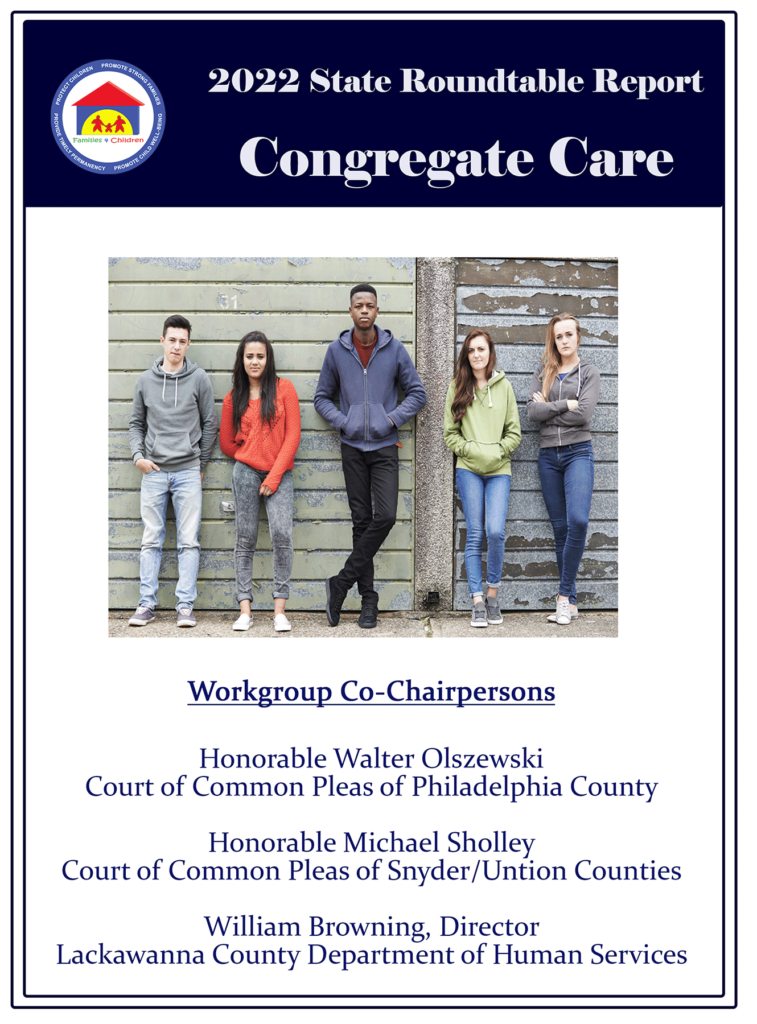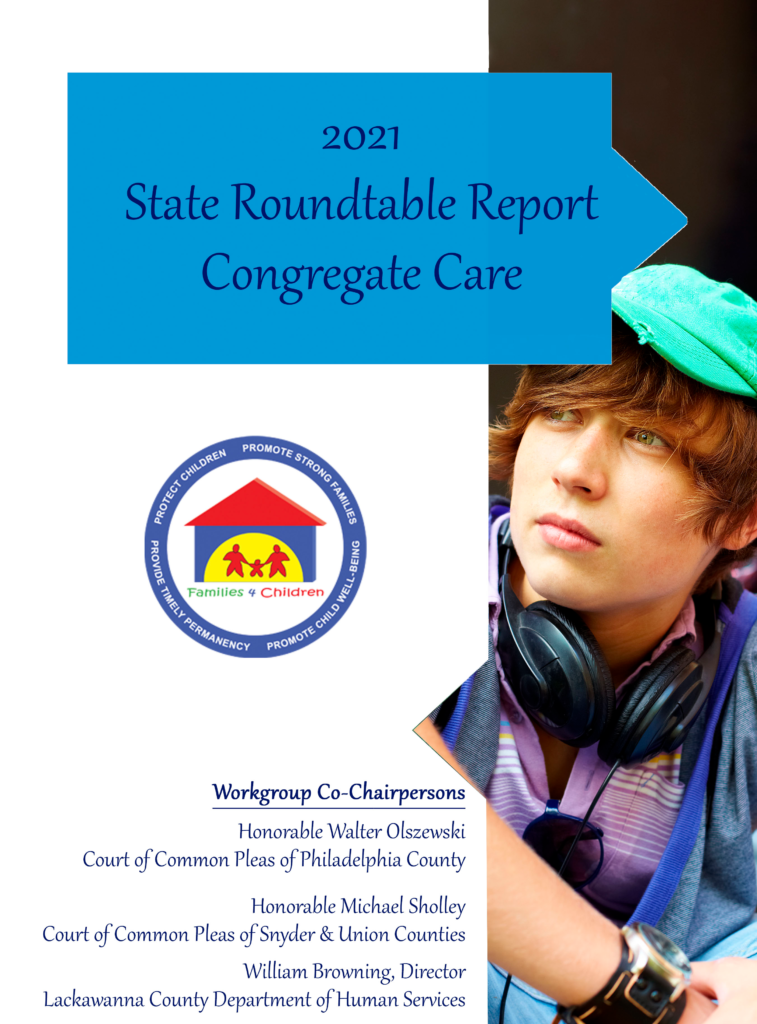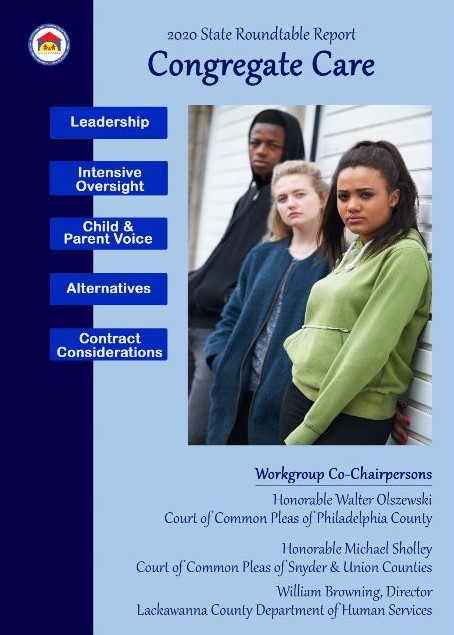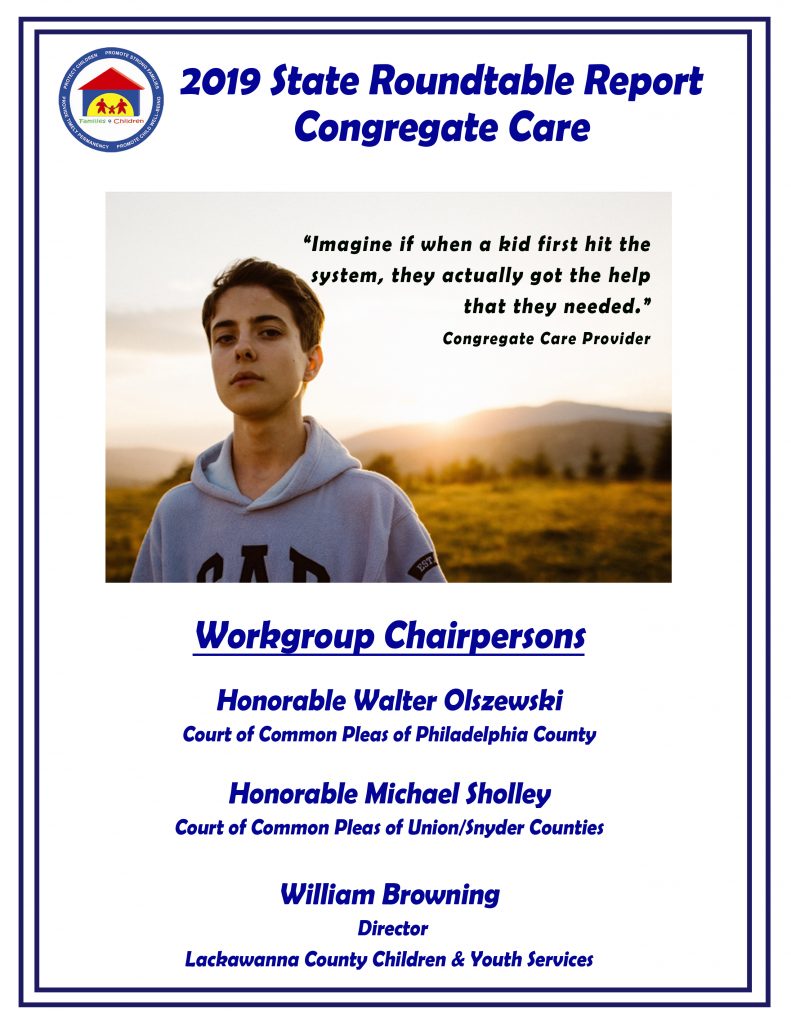Congregate Care Reports
2022 State Roundtable Report
The 2022 Congregate Care Workgroup report to the State Roundtable (SRT) measured the effectiveness of the tools and the presentation created by the group.
- From the beginning of the Workgroup in 2018 until the present, CPCMS data indicated a 32% decrease in congregate care placements across Pennsylvania.
- A survey conducted by the Workgroup indicated that counties using the tools created by the Workgroup reported reductions in congregate care placements.
The Workgroup also collected and disseminated successful practices in counties where congregate care placements decreased.
Finally,The Workgroup hosted a conversation with Jon Rubin, Deputy Secretary of the Department of Human Services’ Office of Children, Youth, and Families addressing the Family First Prevention Services Act and the goal to reduce all placements through prevention services.
Having completed all of its tasks, the Workgroup “sunsetted” with the ability to reconvene as needed.
To read the entire report and final recommendations, click the picture to the right.
2021 State Roundtable Report
The 2021 Congregate Care Workgroup Report focuses on the implementation of the Family First Prevention Act and dissemination of the following tools and practices to counties.
• The Array of Local Service & Practice Alternatives
• Agency and Court Oversight Process
• Report to the Court: Congregate Care Placement Recommendation
• Congregate Care Contract Provision Tool
These tools and practices are available in the 2020 Congregate Care Report to the State Roundtable.
The Workgroup also created a PowerPoint presentation designed for use with local Children’s Roundtables, and customizable to benefit any group
2020 State Roundtable Report
The 2020 Congregate Care Workgroup Report highlights the experiences of youth, parents, successful jurisdictions, and additional congregate care providers. Based upon this and the information contained in the Workgroup’s 2019 Report, the Workgroup answered the critical question, “If not congregate care, then what?”
In answering that question, the 2020 Report underscores the need for strong Court and Agency leadership, intensive oversight of individual placements and contracts, and the development of individualized community alternatives. The report provides four new tools/processes by which these needs can be met. These include:
- Array of Local Service & Practice Alternatives: This tool was created to help Local Children’s Roundtables explore what services currently exist and what services are needed in their unique community.
- Agency and Court Oversight Process: This process is highly recommended for any new or ongoing congregate care recommendation.
- Report to the Court: Congregate Care Placement Recommendation: This tool was created to meet the needs of judicial officers who ultimately order children into or out of congregate care facilities.
- Congregate Care Contract Provision Tool: This tool was created for use by the county child welfare agency. It highlights essential care considerations that should be included in all contracts between the child welfare agency and congregate care entities.
Workgroup members are confident that if the tools/processes are implemented as designed, reliance on congregate care placements will be significantly reduced or eliminated, and more children will be safely maintained in their own homes and communities.
2019 State Roundtable Report
The Congregate Care Workgroup has been tasked to:
Examine congregate care for the purpose of significant reduction/elimination and assist Pennsylvania in the implementation of the Family First Prevention Act.
Identify effective alternatives to the use of congregate care for dependent youth.
During it’s first year, the Workgroup collected and analyzed information from a variety of sources. This report outlines data and key information gathered from congregate care providers, community–based service providers, the PA Department of Education (PDE), the Office of Mental Health and Substance Abuse Services (OMHSAS), the Office of Children and Families in the Courts/Family Finding, the Office of Children, Youth and Families (OCYF), Behavioral Managed Care Organizations and county staff.
The report also provides preliminary Workgroup conclusions and recommendations for future Workgroup activities. To view the report, click the picture to the right.




